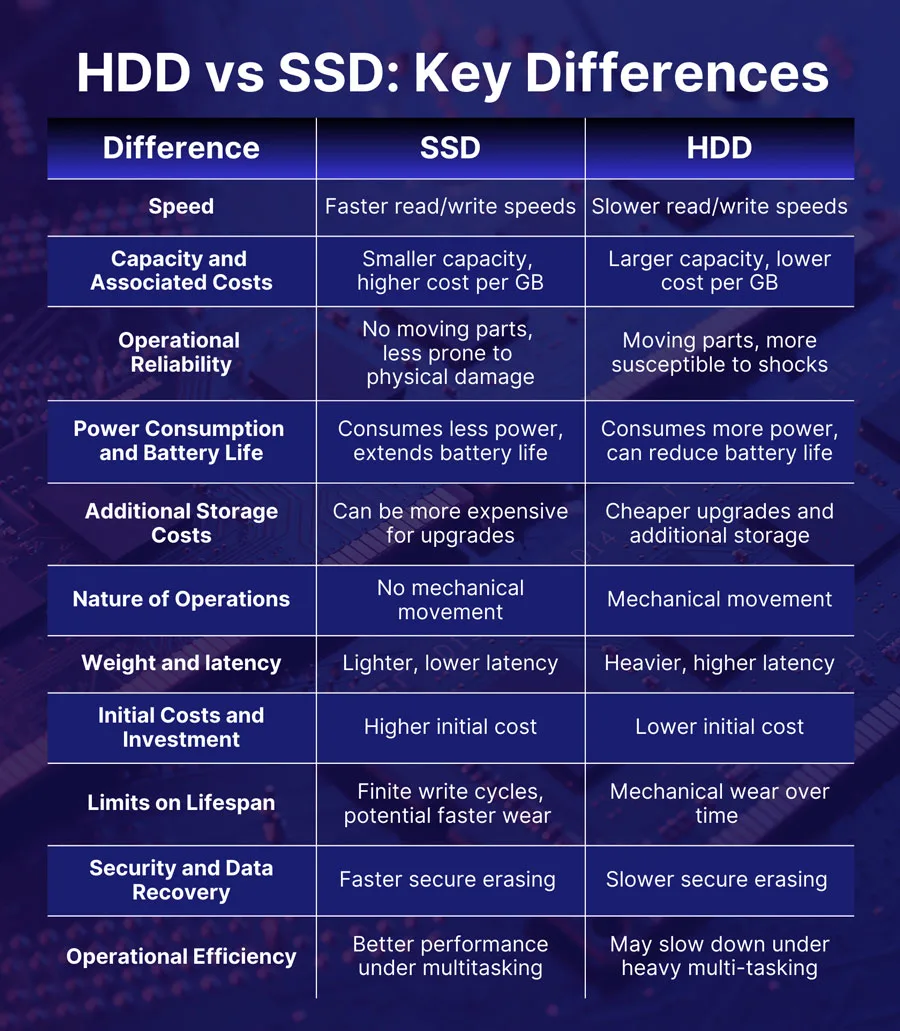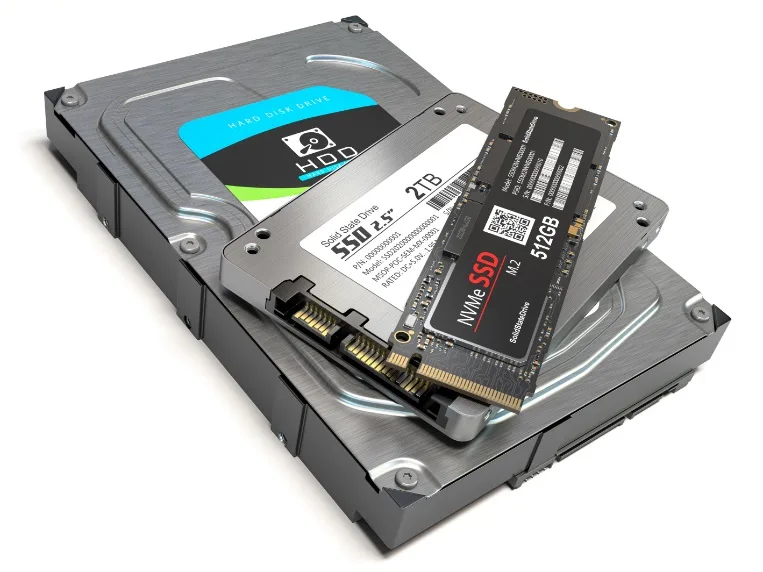In the realm of computer hardware upgrades, few changes have had as profound an impact as the transition from traditional Hard Disk Drives (HDD) to Solid State Drives (SSD). This shift represents a significant leap forward in storage technology, offering numerous advantages that can revolutionize the performance and user experience of your computer system. In this guide, we’ll explore the advantages of replacing your HDD with an SSD hard drive and why it’s a worthwhile investment for enhancing your computing experience.
1. Data Communication Enhancement:
One of the standout benefits of SSDs over HDDs lies in their superior data communication capabilities. SSDs utilize flash memory to facilitate data communication, enabling notably quicker read and write speeds in contrast to the mechanical components of HDDs. This translates to expedited boot times, swifter application launches, and overall system responsiveness. Tasks that previously consumed minutes can now be completed within seconds, revolutionizing your computer interaction experience.

2. Reliability and Durability:
SSDs have no moving parts, unlike HDDs, which rely on spinning disks and mechanical read/write heads. This inherent design difference makes SSDs more resistant to physical shock, vibration, and wear and tear. As a result, SSDs are more reliable and durable over the long term, reducing the risk of data loss due to mechanical failure and extending the lifespan of your storage solution.
3. Energy Efficiency:
SSDs consume less power than HDDs, making them more energy-efficient and environmentally friendly. Because SSDs don’t require power to spin disks or move mechanical components, they generate less heat and consume less electricity during operation. This not only helps reduce energy costs but also contributes to a quieter and cooler computing environment, particularly in laptops and other portable devices where battery life and thermal management are critical considerations.
4. Quiet Operation:
The absence of moving parts in SSDs results in virtually silent operation compared to the audible noise generated by spinning disks in HDDs. This quiet operation is particularly advantageous for users who value a noise-free computing environment, such as those working in quiet office spaces, recording studios, or home environments where noise pollution is a concern. With an SSD, you can enjoy a more peaceful computing experience without the distraction of constant disk activity noise.
5. Space Efficiency and Form Factor:
SSDs are typically smaller and lighter than HDDs, making them ideal for systems where space is limited or weight considerations are important, such as slim laptops, ultrabooks, and small form factor desktop PCs. Additionally, SSDs come in various form factors, including standard 2.5-inch drives, M.2 drives, and PCIe SSDs, providing flexibility in design and compatibility with a wide range of computer systems.

In conclusion, replacing your HDD with an SSD hard drive offers a multitude of advantages that can significantly enhance the performance, reliability, and efficiency of your computer system. From faster boot times and application launches to improved durability and energy efficiency, SSDs represent a transformative upgrade that can breathe new life into your aging hardware. Whether you’re a casual user seeking a speed boost or a professional demanding the utmost reliability and performance, upgrading to an SSD is a decision that’s sure to pay dividends in the long run.

